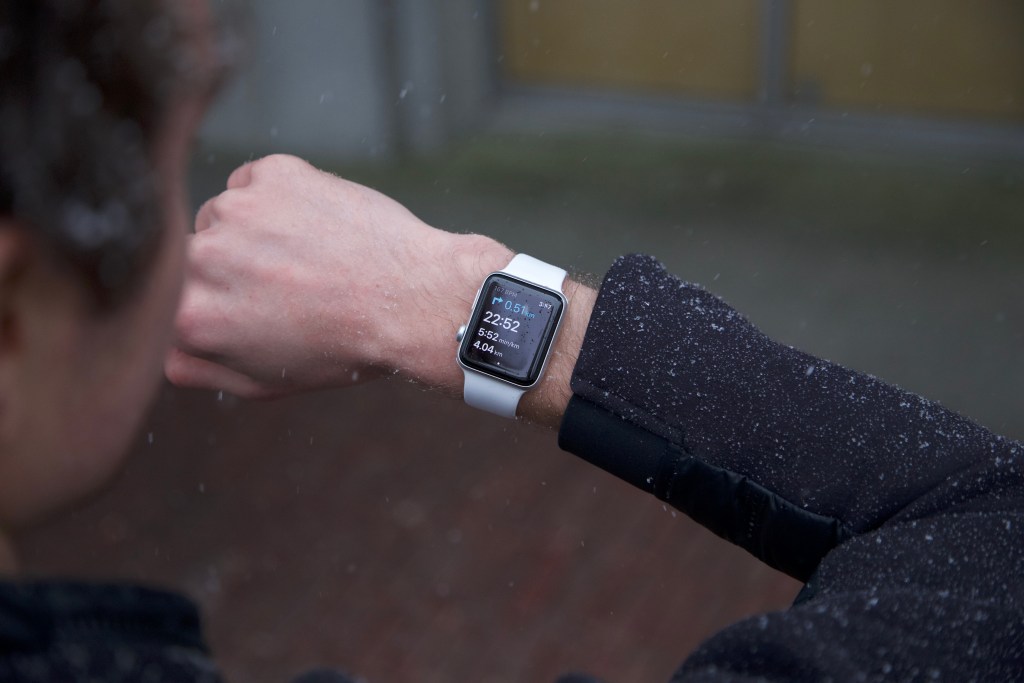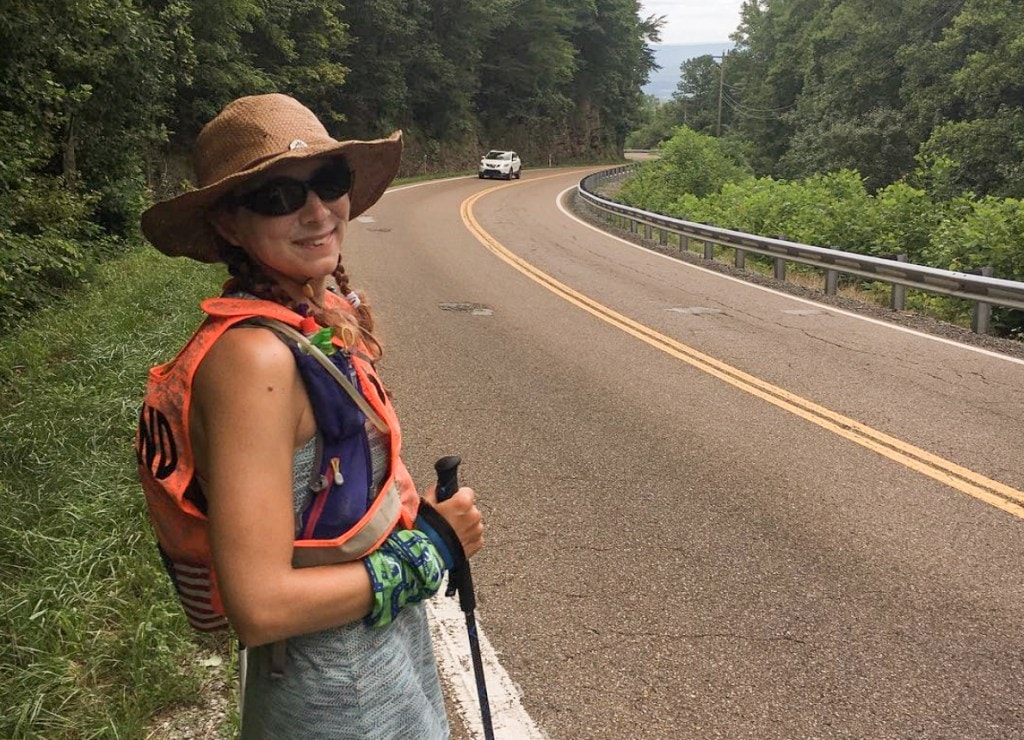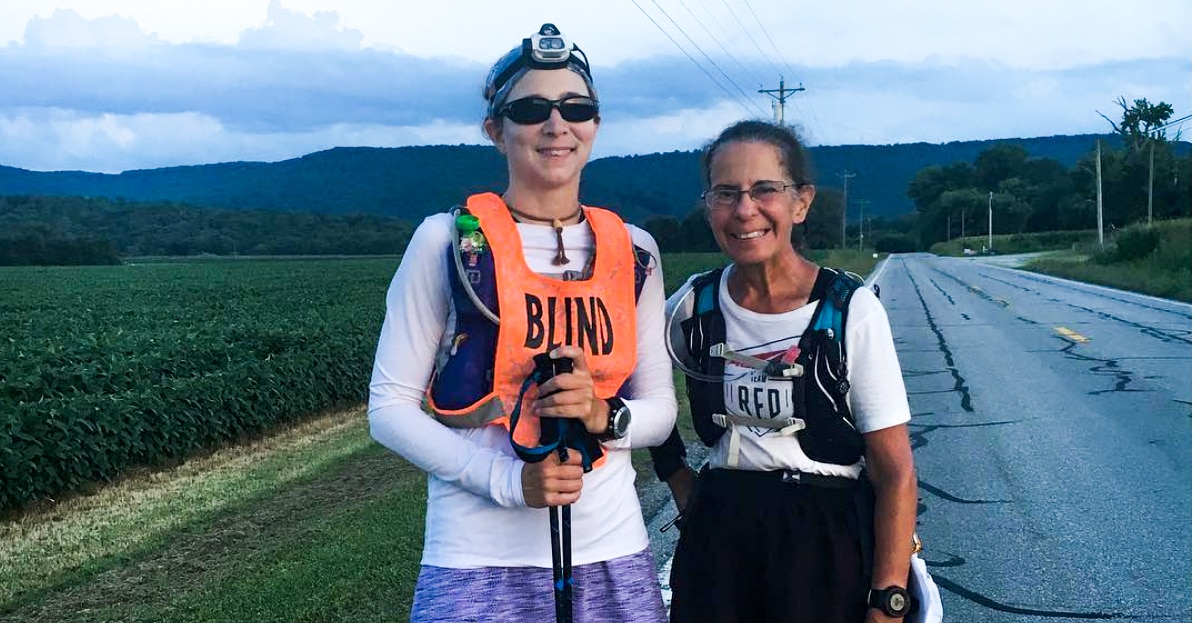In late August, a 35-year-old Google employee named Will Barkan ran the Tamalpa Headlands 50K, a trail ultramarathon in Sausalito, California, just north of San Francisco. It was Barkan’s third time running that race, but this time, he was able to run it on his own, without a guide.
When Barkan was 10, he was diagnosed with Stargardt’s disease, a genetic retinal disorder that leads to the loss of central vision, the part of his sight that enables him to focus straight ahead. Barkan gets around without a cane or guide, but when he’s running in big crowds, at night or for longer distances, he needs assistance. “When you start running more than 50 miles, you need to run in the dark. That’s when I started using guides,” Barkan said.
But then, someone in his running group suggested an app called RunGo, which has pre-programmed running routes and gives audio cues from your phone or watch announcing turns, junctions and other landmarks.
Last February, Barkan ran his first 100K distance, the Ordnance 100K in Salinas, California, mostly on his own using the app (he did use two guides during periods of darkness). He jokingly calls his phone a “robot pacer” and says with help from the app, he’s saved sighted runners more than once when they’ve gone off course or missed a flag. “The biggest difference with the app is that I can run independently,” he said. “It tells me if I’m off course and any upcoming turns. Now I run solo under most conditions. That hasn’t always been the case where I’ve had that level of confidence.”
When Craig Slagel launched RunGo in Vancouver, British Columbia, in 2014, he had no idea he’d eventually help runners who are visually impaired like Barkan. That was an unintentional side effect. Slagel, who’s originally from London, England, was working in the visual effects industry for Hollywood movies, living in Canada and traveling a ton. When he’d go running in foreign cities, he’d often get lost. Once, while on a business trip to Tokyo, he set out on what he hoped would be an hour-long run with a map provided by his hotel. Two hours later, he was lost and late for his morning meeting. (He admits he doesn’t have a great sense of direction.)
“I’d spend all this time trying to figure out a route, memorize it and still get lost anyway,” Slagel said. “I just wanted to go and run. I was an early adopter of car GPS systems and I thought, there should be something like this for running, too.”
So he built a first-of-its-kind hands-free app with turn-by-turn voice navigation, designed for runners. RunGo works offline, if routes are downloaded ahead of time, and like other fitness apps, it tracks time, distance, pace, elevation and calories burned, plus it can give speech updates on distance and pace and runners can add custom audio messages. Picture being near the end of your run and your phone telling you to pick up the pace for the final stretch or sharing insight on local landmarks or spots to grab water.

The RunGo app works on your phone or watch and tells you directions on pre-programmed running routes. (Photo Credit: RunGo)
When Slagel adopted a retired guide dog named Dynasty, he realized, maybe his app could be useful for other groups of people, too. “I built the app more for myself, so I wouldn’t get lost while traveling, but I realized it could be beneficial to visually impaired runners as well,” he said.
Today, RunGo has more than 100,000 trail and road routes around the world, and Slagel is now working on a second version of the app designed for multipurpose use, like biking and hiking.
Runners like Rhonda-Marie Parke, from Kitchener, Ontario, are grateful. Parke, who’s legally blind with about eight percent vision, started running 10 years ago. A few years later, she decided to try ultramarathon distances, mainly with guides to help her navigate.

Rhonda-Marie Parke running the Vol State ultramarathon.
In July, Parke ran 314 miles across Tennessee to complete the Vol State ultramarathon to celebrate her 40th birthday. She had a support crew but ran most of the course entirely on her own, with help from the RunGo app. Her crew also programmed the app to give her personal messages along the route, like when there was a gas station nearby in case she needed a bathroom break and when the church where she’d be spending the night was coming up on her left.
She says at times, she had a conflicting relationship with the device, but overall, it gave her independence. “Take your car GPS on a route you don’t know and try not to swear at it,” Parke said. “By the end, me and my RunGo were having some pretty interesting conversations.”


